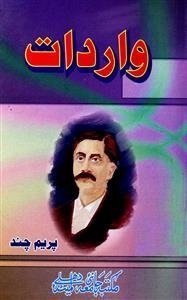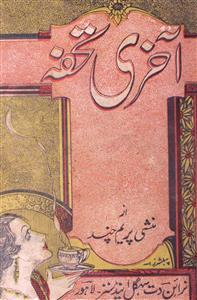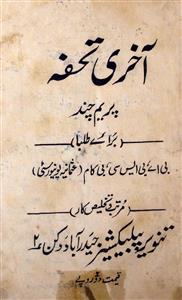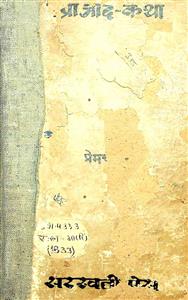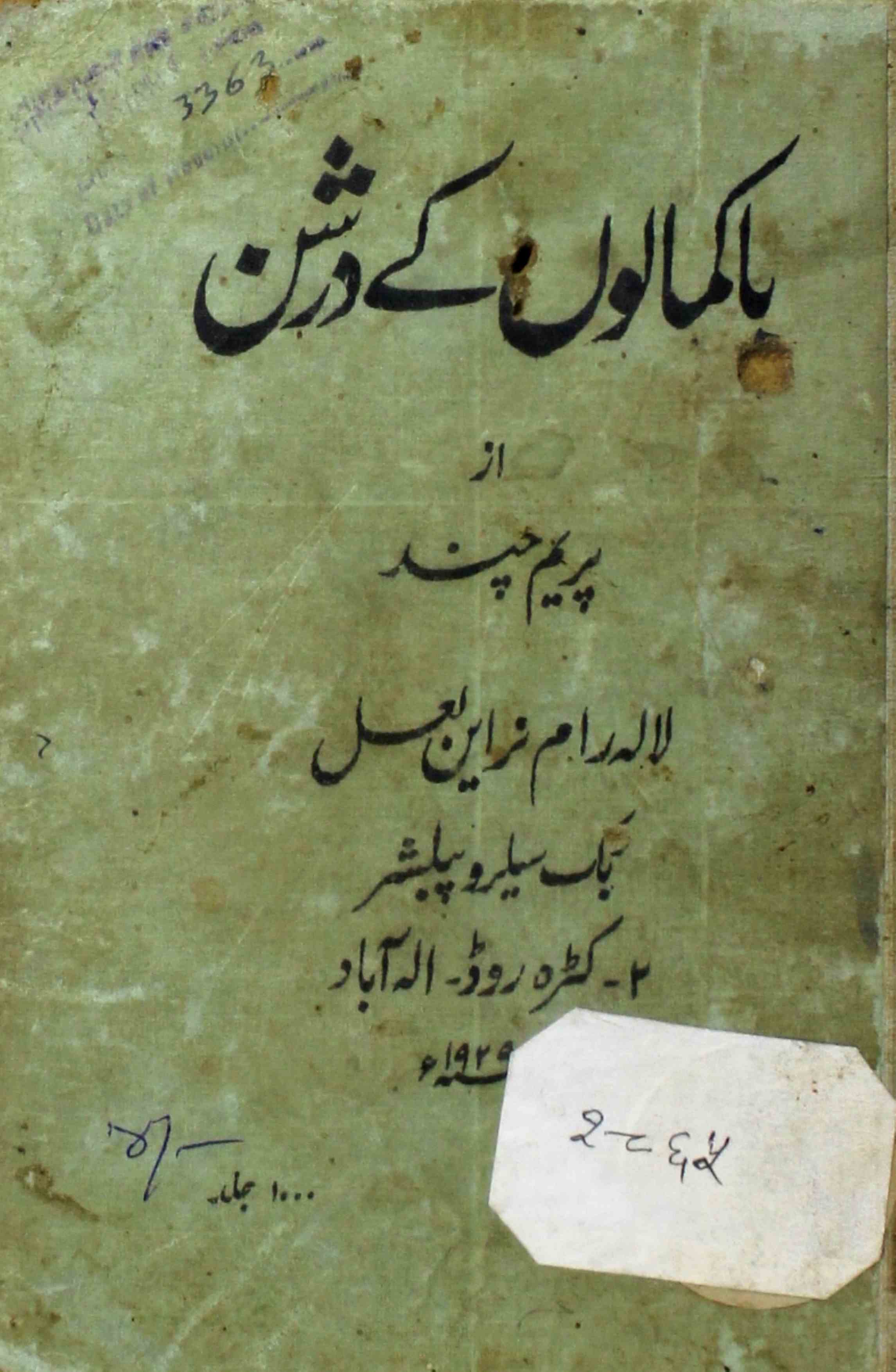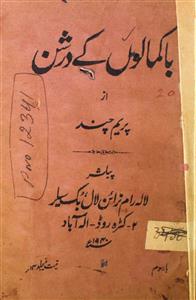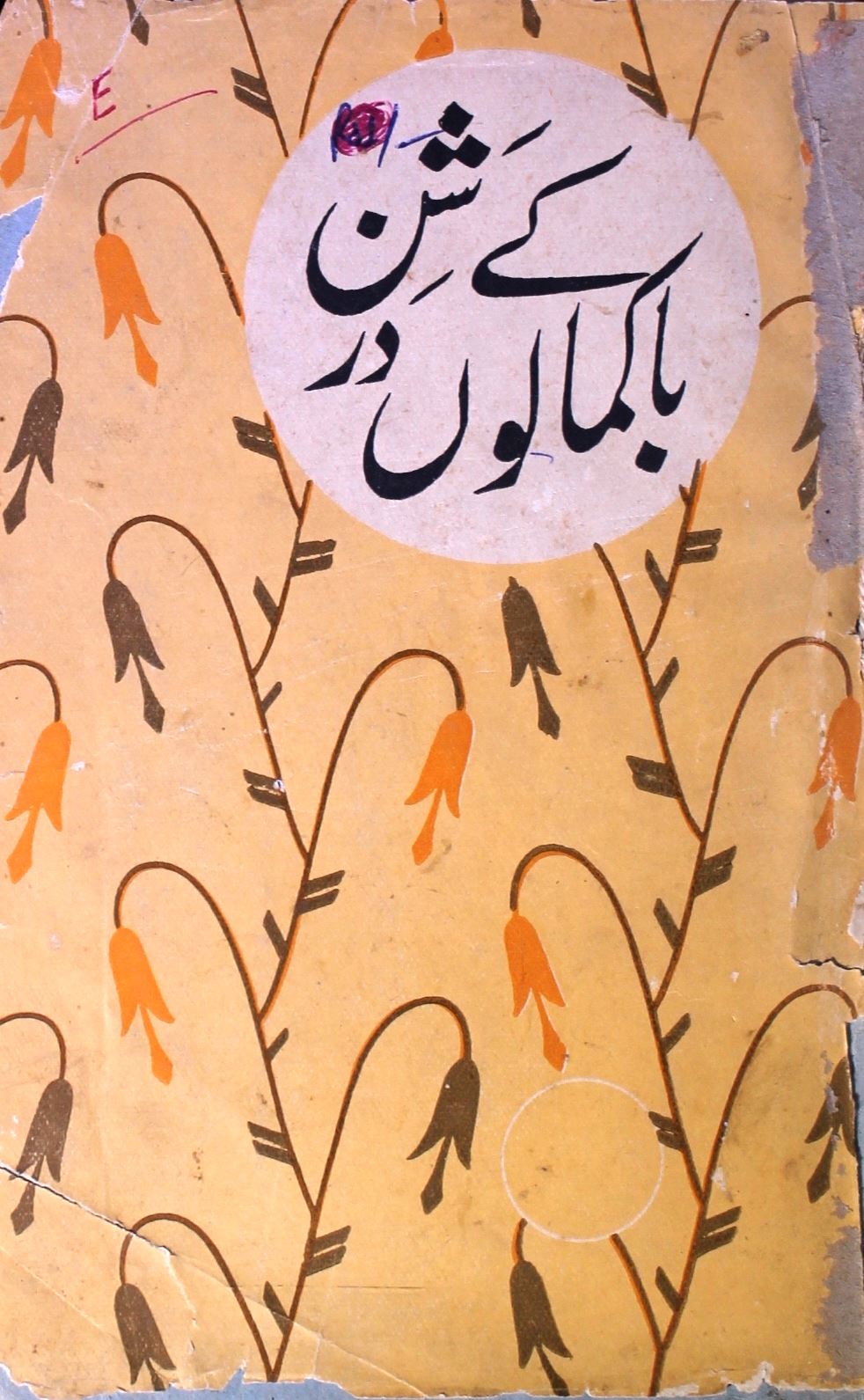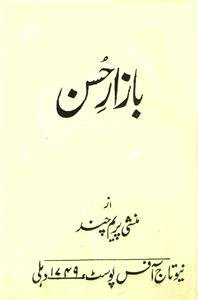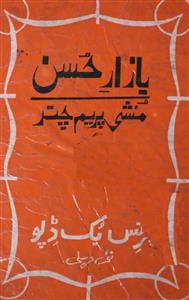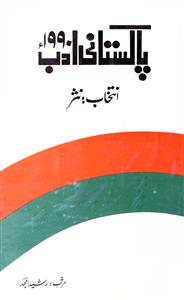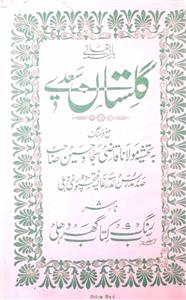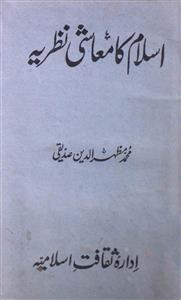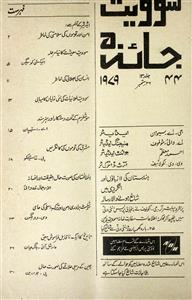 For any query/comment related to this ebook, please contact us at haidar.ali@rekhta.org
For any query/comment related to this ebook, please contact us at haidar.ali@rekhta.org
About The Book
"واردات" منشی پریم چند کے افسانوں کا آخری مجموعہ ہے جو 1937 میں ان کی وفات کے بعد شایع ہوا۔ اس افسانوی مجموعہ میں ان کی 13 کہانیاں شامل ہیں۔ ان افسانوں میں بھی پریم چند کی تخلیق کا کرب ان کی شخصیت کا حصہ بن کر معاشرے کی اصلاح کا کام دیتا ہے اور انسانی شعور کو متحرک کرتا ہے ۔ اپنے افسانوں میں حقیقت کی ترجمانی کے لئے انہوں نے بعض اوقات دردناک صورت حال کو سفاکانہ معروضیت کے ساتھ پیش کیا ہے۔ انہوں نے جراحی سے معاشرے کا بھیانک چہرہ دکھانے کے لئے اپنے مذہبی و اخلاقی آدرشوں کو بھی بالائے طاق رکھ دیا اور پرواہ نہ کی ۔ یہ ان کی فنکارانہ مہارت ہے کہ ذہنی و فکری عوامل کے پس منظر میں ان کی تخلیقی اظہاریت معاشی نا ہمواریوں کے خلاف احتجاج اور استحصالی قوتوں کے خلاف نبرد آزما ئی کے لئے ان کے ذاتی تجربات و مشاہدات میں ڈھال کر پوری چابکدستی سے قرطاس آشنا ہوتی ہے۔ ان کے اس مجموعہ میں شکوہ شکایت، معصوم بچہ ، بد نصیب ماں، شانتی، روشنی، مالکن، نئی بیوی، گلی ڈنڈا، سوانگ، انصاف کی پولس، غم نداری بز بخر ، مفت کرم داشتن اور قاتل ماں شامل ہے ۔
About The Author
Prem Chand is among the greatest short-story writers and Novel-writers of both Urdu and Hindi languages. The adherents of Hindi-literature call him ‘Upanyas Samrat’, that is the king of novel writing. What he wrote in his nearly 35-year literary career bears the stamp of a communal togetherness. There is no precedent in Urdu fiction for the intense patriotism that is evident in his writings. He was so obsessed with the freedom movement that he resigned from his good job of 20 years, which he had obtained after a long period of poverty and hardship, in response to Mahatma Gandhi's "non-cooperation" movement. His writings provide vivid images of the social and political life of the early 30-35 years of the twentieth century. He took his characters from everyday life and made these ordinary characters extremely special with his brilliant storytelling and captivating expression. Prem Chand's sense of woman's greatness, femininity and respect for her rights is also not found anywhere else. Prem Chand was both an idealist and a realist. His writings seem to be a constant search for a balance between idealism and realism.
Munshi Prem Chand was born on 31 July 1880 in Mouza Lamhi, near Banaras. His real name was Dhanpat Rai and at home he was called Nawab Rai. It was under this name that he began his literary career. His father, Ajaib Rai, worked for Rs. 20 a month at the Post Office and lived a life of hardship. According to the constitution of the time, Prem Chand received his early education from the village maulvi in the school, then his father was transferred to Gorakhpur and he was admitted in the school there. But soon after, Ajaib Singh changed his mind and returned to his village. When Prem Chand was seven years old, his mother died and his father remarried. After that, the atmosphere in the house became even more bitter than before, from which Prem Chand took solace in books. From a bookseller, he began reading translations of countless novels from world literature. At the age of fifteen, against his will, he married an ugly girl older than him. A few days later, Ajaib Rai also passed away and besides his wife, the responsibility of stepmother and two step brothers fell on his head. He had not even passed the tenth grade yet. He used to walk ten miles barefoot to Banaras every day, teach tuition and return home at night to study. Thus, he passed the matriculation examination in 1889. He did not get admission in the college due to poor arithmetic, so he got a job in a school. He then obtained a degree from Allahabad Training School in 1904 and in 1905 he was posted to a government school in Kanpur. It was here that he met Munshi Diya Narain Nigam, editor of Zamana magazine. This magazine became a launching pad for him in literature. In 1908, Prem Chand moved to Mahoba (Hamirpur district) as a sub-inspector of madrassas. In 1914 he was sent to Basti as a Master Normal School and in 1918 he was transferred to Gorakhpur. The following year he completed his B.Sc. in English, Literature, Persian and History. In 1920, when the non-cooperation movement was on the rise and the Jallianwala Bagh incident took place shortly after, Gandhiji came to Gorakhpur. In 1922, after resigning from his job, Prem Chand opened a spinning wheel shop which did not work, so he got a job in a private school in Kanpur. He then set up the Sarasvati Press in Banaras, which was lost and had to close. Twice in 1925 and 1829, he worked for the Naval Kishore Press in Lucknow, wrote textbooks and edited a Hindi magazine, Madhuri. The government confiscated his writings several times but they somehow managed to get him out. In 1934, he came to Bombay at the invitation of a film company and wrote the story of a film, Mazdoor, but influential people banned its screening in Bombay. The film was released in Delhi and Lahore but was later banned there as well due to fears of unrest in the industry. In this film, he himself played the role of a labor leader. In Bombay, he could have found more writing work in films, but he did not like the ways of the film industry and returned to Banaras. In 1936, Prem Chand was elected president of the Progressive Writers' Association in Lucknow. The last days of Prem Chand's life were full of hardships and constant illness. He died on October 8, 1936.
Prem Chand and his first wife reached an impasse, and the latter left his home for her mother’s. After their separation, Prem Chand married a young widow Shiv Rani Devi against the wishes and customs of the family. He had a daughter Kamala and two sons Shri Pat Rai and Amrit Rai.
Prem Chand's first creation was a comedy-drama he wrote at the age of 14, based on his ugly uncles. The following year, he wrote another play, Honhar Barwa Ke Chakne. Neither of these plays were ever printed. His literary career began five or six years later with a short novel titled ‘Asrar-e-Ma’bid’, which was published serially in the weekly Awaaz-e-Haq in Banaras between 1903 and 1904. But a friend of Prem Chand, Munshi Betab Barelvi, claims that his first novel was Pratap Chandra, which was written in 1901 but was not published and later came out in the form of ‘Jalva-e-Isar’. In 1916, he completed his huge novel "Bazaar-e-Husn" which no publisher could find and it became popular in Hindi under the name "Siva Sadan". The novel was published in Urdu in 1922. The same thing happened with the novels that were written after that. The "Gosht-e-Afeet" was completed in 1922 and was published in 1928. While the Hindi edition of "Prem Ashram" was published in 1922. Nirmala was published in Hindi in 1923 and in Urdu in 1929. "Chogan Hasti" was written in 1924 and published under the name "Rang Bhoomi" and was declared the best work of the year by the Indian Academy, but the novel was published in Urdu in 1927. In this way, Prem gradually became a Hindi writer because he got better compensation from Hindi publishers. The same thing happened with "Ghaban" and "Maidan-e-Amal" (Karam Bhoomi in Hindi). "Gowdan" is Prem Chand's last novel which was published in 1936. In the last few days, Prem Chand had started writing "Mangal Sutra" which remained incomplete.
In addition to the novel, eleven collections of Prem Chand's short-stories have been published. It began in 1907 when he wrote “Duniya Ka sabse anmol ratan”. By 1936, he had written hundreds of stories, but in Urdu this number is about 200 because many Hindi stories could not be translated into Urdu. Soz-e-Watan, Prem Chand's first collection of short-stories, appeared under the pen-name of Nawab Rai. He was questioned by the government and all copies of the book were burnt. After that he started writing under the name of Prem Chand. His other collections include Prem Pachisi, Prem Batisi, Prem Chalisi, Firdous Khayal, Khak Parwana, Khawab Khayal, and Wardat.
No other author has been as influential as Prem Chand in Urdu fiction. Many of his works have been translated into other languages. One of the great virtues of Prem Chand is his simple and smooth language and clear and unpretentious style of writing. He started writing at a time when fictional tales and love stories were rife. Prem Chand came and turned this tide. He took his readers out of the bright and colorful world of the city and into the dark and miserable world of the village. It was the discovery of a new world in Urdu fiction. The study of Prem Chand cannot be justified without understanding the vastness and depth of this world, because the aesthetics of Prem Chand's art and its basic truths were nurtured in this broad context and made it achieve the status of a legend.
 For any query/comment related to this ebook, please contact us at haidar.ali@rekhta.org
For any query/comment related to this ebook, please contact us at haidar.ali@rekhta.org
